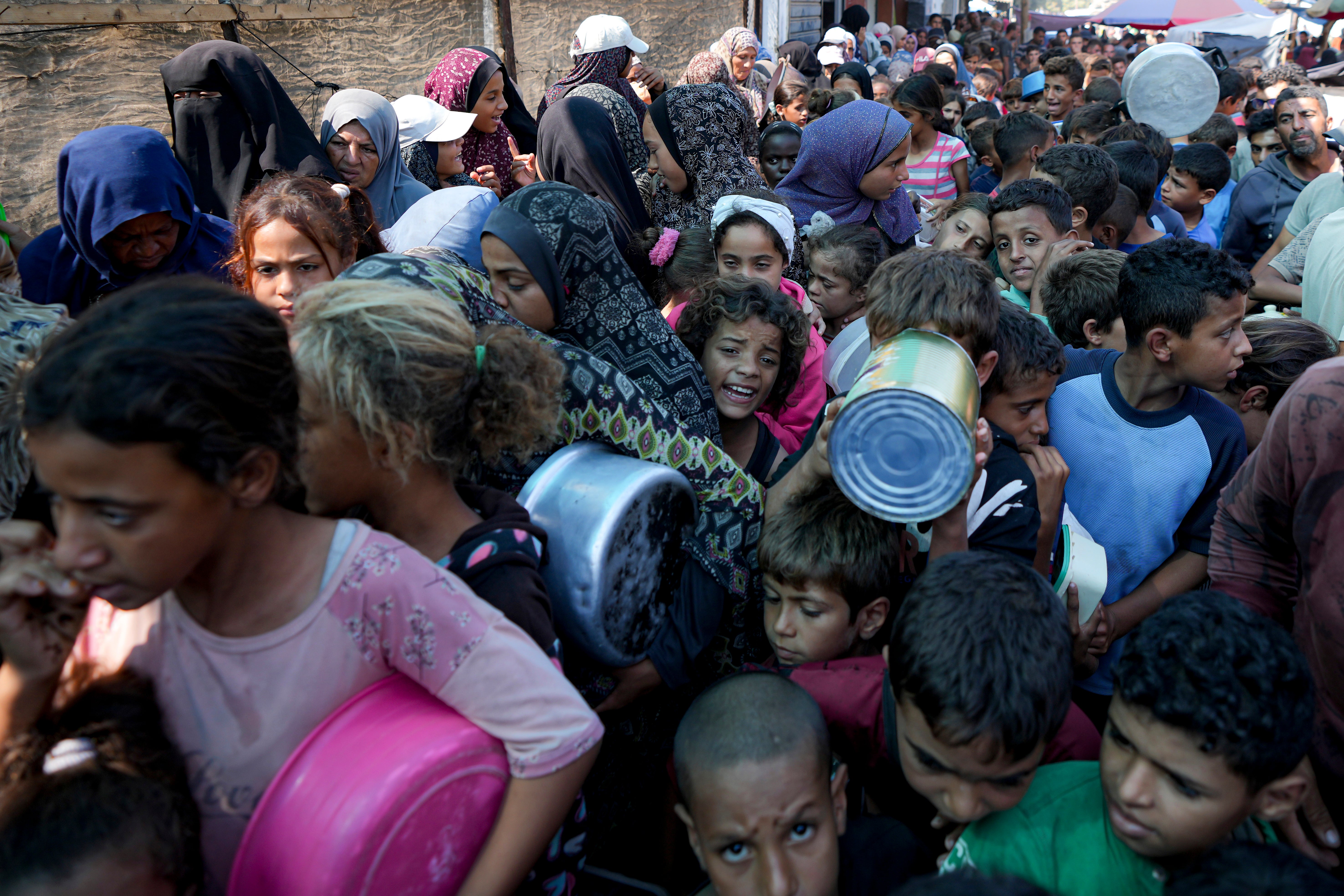New UN aid chief vows 'ruthlessness' to prioritize spending as funding for world's crises shrinks
The new head of the U.N. humanitarian aid agency is calling for “ruthlessness” when prioritizing how it spends money

Your support helps us to tell the story
From reproductive rights to climate change to Big Tech, The Independent is on the ground when the story is developing. Whether it's investigating the financials of Elon Musk's pro-Trump PAC or producing our latest documentary, 'The A Word', which shines a light on the American women fighting for reproductive rights, we know how important it is to parse out the facts from the messaging.
At such a critical moment in US history, we need reporters on the ground. Your donation allows us to keep sending journalists to speak to both sides of the story.
The Independent is trusted by Americans across the entire political spectrum. And unlike many other quality news outlets, we choose not to lock Americans out of our reporting and analysis with paywalls. We believe quality journalism should be available to everyone, paid for by those who can afford it.
Your support makes all the difference.The new head of the U.N. humanitarian aid agency says it will be “ruthless” when prioritizing how to spend money, a nod to challenges in fundraising for civilians in war zones like Gaza, Sudan, Syria and Ukraine.
Tom Fletcher, a longtime British diplomat who took up the U.N. post last month, said his agency is asking for less money in 2025 than this year. He said it wants to show "we will focus and target the resources we have,” even as crises grow more numerous, intense and long-lasting.
His agency, the U.N. Office for the Coordination of Humanitarian Affairs, on Wednesday issued its global appeal for 2025, seeking $47 billion to help 190 million people in 32 countries — though it estimates 305 million worldwide need help.
“The world is on fire, and this is how we put it out,” he told reporters on Tuesday.
The office and many other aid groups, including the international Red Cross, have seen donations shrink in recent years for longtime trouble spots like Syria, South Sudan, the Middle East and Congo and newer ones like Ukraine and Sudan. Aid access has been difficult in some places, especially Sudan and Gaza.
The office's appeal for $50 billion for this year was only 43% fulfilled as of last month. One consequence of that shortfall was a 80% reduction in food aid for Syria, which has seen a sudden escalation in fighting in recent days.
Such funds go to U.N. agencies and more than 1,500 partner organizations.
The biggest asks for 2025 are for Syria — a total of $8.7 billion for needs both within the country and for neighbors that have taken in Syrian refugees — as well as Sudan at a total of $6 billion, the “Occupied Palestinian Territory” at $4 billion, Ukraine at about $3.3 billion and Congo at nearly $3.2 billion.
Fletcher said his office needs to be “ruthless” in choosing to reach people most in need.
“I choose that word carefully, because it's a judgement call — that ruthlessness — about prioritizing where the funding goes and where we can have the greatest impact," he said. “It's a recognition that we have struggled in previous years to raise the money we need.”
In response to questions about how much President-elect Donald Trump of the United States — the U.N.'s biggest single donor — will spend on humanitarian aid, Fletcher said he expects to spend “a lot of time” in Washington over the next few months to talk with the new administration.
“America is very much on our minds at the moment," he said, acknowledging some governments “will be more questioning of what the United Nations does and less ideologically supportive of this humanitarian effort” laid out in the new report.
This year has been the deadliest on record for humanitarians and U.N. staff, largely due to the Middle East conflict triggered by Palestinian militants' deadly Oct. 7, 2023 attack in Israel.